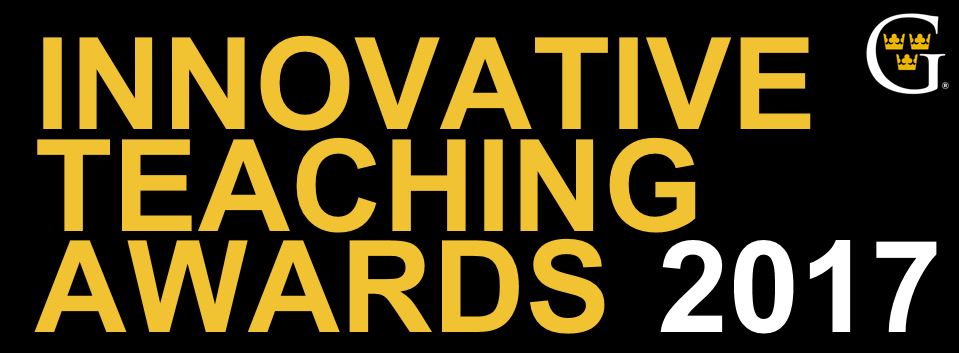Gustavus Adolphus College professors Baker Lawley and Glenn Kranking were recently recognized with 2017 Innovative Teaching Awards, which were announced at the December Faculty Meeting. Sponsored by the John S. Kendall Center for Engaged Learning and the Office of the Provost, the awards recognize faculty who are engaged in innovative pedagogical practices.
“Gustavus faculty regularly redesign their courses or their assignments to facilitate student learning using research-based methods and technologies,” political science professor and director of the John S. Kendall Center for Engaged Learning Alisa Rosenthal said. “These awards recognize just a few of the successful pedagogical innovations found throughout the curriculum, all of which are part of achieving the Gustavus vision of providing students an innovative liberal arts education of recognized excellence.”

Baker Lawley, associate professor of English, is the 2017 recipient of the Teaching Award for Innovative Course Design. In his ENG 350 course, Editing and Publishing, students serve as the editorial staff for the College’s semiannual on-campus literary magazine, Firethorne, as well as Razor, an online lit mag featuring professional writers from around the globe. The students in the class read submissions, establish criteria for publishing, and decide together which pieces will be featured in the publications. By working both in print and digital format, the students were exposed to different layout and design principles for each medium. Through their hands-on work in running the publications, students reported increased confidence in knowing how to apply their English and humanities skills in a variety of contexts.

Glenn Kranking, associate professor of history and Scandinavian Studies, won the Teaching Award for Innovative Assignment Design for a project students completed in his new course, We Want You! Propaganda and Persuasion in the Modern World (HIS 303). Throughout the semester, students worked to create and maintain a class website that showcases and analyzes examples of historical propaganda and created their own propaganda campaign to encourage student engagement in last year’s presidential election. Like Lawley’s course, Kranking’s class project gave students the opportunity to pair their liberal arts learning and analysis with skills such as website building, tagging and curating content, and balancing academic and general writing skills.
The web-based project also makes for easier and more widespread collaboration, the students learned.
“Digital projects are open access, offering students the ability to share their research and perspectives with a much wider audience,” Kranking explained. “As an example, over the summer I received an email from someone in Spain who came across the site and offered an example to add to the collection of a recent political poster that drew direct inspiration from an early Soviet poster. The project is also intentionally a long-term project, with each subsequent offering of the course expanding the content, making it a dynamic resource and a platform to highlight the amazing work our students are doing.”
Both courses recognized incorporate the Digital Humanities, a focus across disciplines to work with students to integrate technology into lifelong learning through analysis and critical thinking. To learn more about the Digital Humanities at Gustavus, read the Gustavus Quarterly article on the initiative.

Leave a Reply
You must be logged in to post a comment.